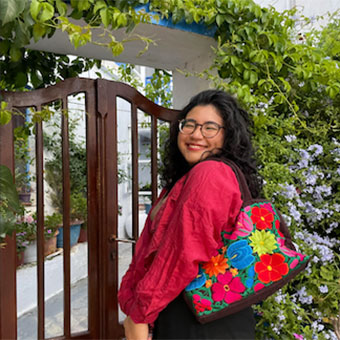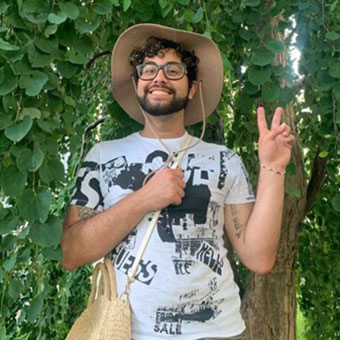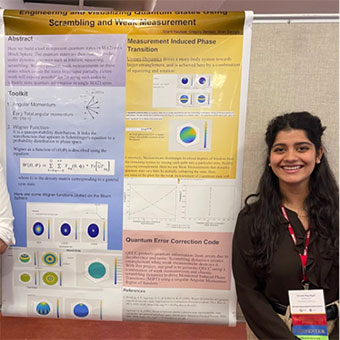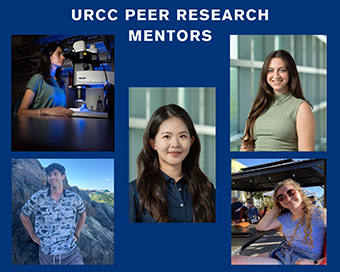Undergraduate Research Spotlights
The Undergraduate Research and Creative Collaborations Office highlights students who have engaged in research and creative projects. We share their experiences through our website, newsletter and other Brandeis channels.
View the latest undergraduate spotlights below. (Click the photo text or students' names to read their full interviews). You can read about other research experiences on our Past Spotlights page.

-
Majors: Sociology
-
Minor: Legal Studies, Social justice Social Policy (SJSP) and Studio Art
-
Accomplishments: Co-president of the Femmes of Color Alliance (FOCA) | URCC Peer Research Mentor 2023-24

-
Majors: Health, Science, Society and Policy (HSSP) and Biology
-
Minor: Arabic
-
Accomplishments: MLK Fellow Board Member | Arabic Department UDR | Admissions Diversity Coordinator | URCC Peer Research Mentor | Network of Arab Students Vice President and Secretary

-
Majors: Physics and Mathematics
-
Accomplishments: URCC Peer Research Mentor 2022-23
